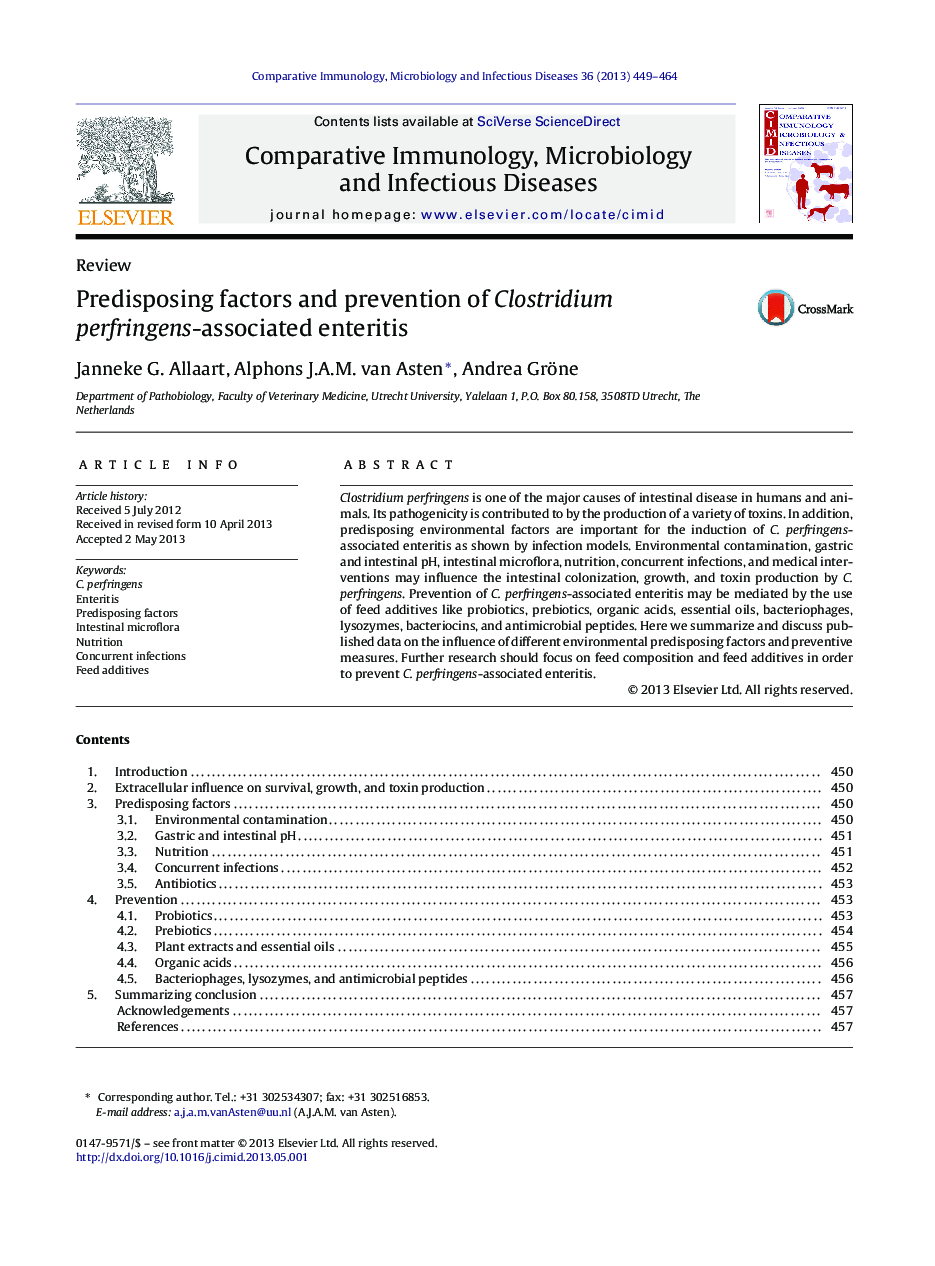| Article ID | Journal | Published Year | Pages | File Type |
|---|---|---|---|---|
| 10971375 | Comparative Immunology, Microbiology and Infectious Diseases | 2013 | 16 Pages |
Abstract
Clostridium perfringens is one of the major causes of intestinal disease in humans and animals. Its pathogenicity is contributed to by the production of a variety of toxins. In addition, predisposing environmental factors are important for the induction of C. perfringens-associated enteritis as shown by infection models. Environmental contamination, gastric and intestinal pH, intestinal microflora, nutrition, concurrent infections, and medical interventions may influence the intestinal colonization, growth, and toxin production by C. perfringens. Prevention of C. perfringens-associated enteritis may be mediated by the use of feed additives like probiotics, prebiotics, organic acids, essential oils, bacteriophages, lysozymes, bacteriocins, and antimicrobial peptides. Here we summarize and discuss published data on the influence of different environmental predisposing factors and preventive measures. Further research should focus on feed composition and feed additives in order to prevent C. perfringens-associated enteritis.
Keywords
Related Topics
Life Sciences
Agricultural and Biological Sciences
Animal Science and Zoology
Authors
Janneke G. Allaart, Alphons J.A.M. van Asten, Andrea Gröne,
